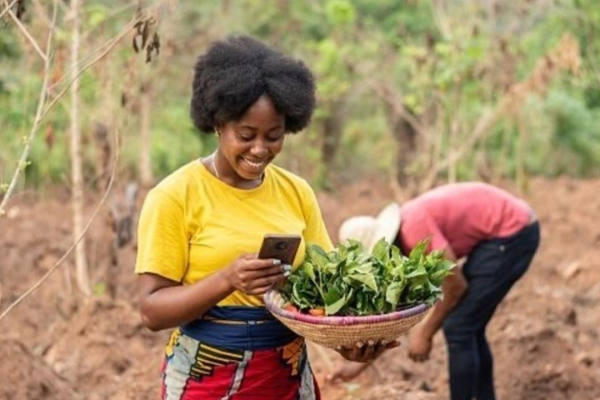Digital technologies can revolutionize African agriculture. The adoption of innovative technologies can boost productivity and enhance the competitiveness of farmers across the continent.
Access to technology, combined with tools such as big data, GPS, and drones, could increase crop yields in Africa by 10.5% to 20% over the next five years, the GSM Association (GSMA) projects. In its May 2024 report, Driving Digital Transformation of African Economies, the organization also predicts that expanding ICT usage in African agriculture could lead to a 23% increase in profits over the same period. GSMA emphasizes the need for African governments to make smart digital investments, as these could drive growth across several strategic economic sectors.
Agriculture remains a critical engine for growth and employment in Africa. Recent advancements are already delivering more efficient services to farmers. “For example, Aerobotics in South Africa provides data analytics and machine learning to process aerial imagery from drones and satellites, providing realtime insights on crop performance, pests, plant health, irrigation levels,” the report details.
Even simpler digital tools can enhance agricultural supply chain efficiency through better access to information and training. “SMS messages to smallholder sugarcane farmers about when to perform specific agricultural tasks was found to increase yields by 11.5%,” GSMA notes.
Additionally, technology is enhancing market access for farmers through new models of aggregation, logistics, and supply chain management. In Ethiopia, for instance, the Ethiopian Commodity Exchange now differentiates coffee quality more effectively, and its traceability technology allows small farmers to connect directly with global buyers.
Agriculture is essential to Africa’s economic growth and food security, and international organizations, including the United Nations, are calling for its digital transformation to improve product quality and yields. This interest has spurred continuous investment in agritech startups over the past five years, despite the 2023 funding crunch. According to Briter Bridges’ State of AgTech Investment in Africa 2024 report, the agricultural sector accounted for 13% of total funding and 5% of all fundraising deals in 2020. While this dropped to 6% of both funding and deal volume in 2023, Oxford Business Group’s Agriculture in Africa 2023, in partnership with OCP Group, forecasts a promising annual growth rate of 44% in African agritech from 2023 to 2028.
For African farmers to fully benefit from digital transformation, however, expanding network coverage, increasing access to mobile devices, and making internet access affordable are crucial. Addressing these issues could integrate more farmers into the digital economy. According to GSMA’s The State of Mobile Internet Connectivity 2024 report, boosting mobile internet use could add $795 billion to Africa’s GDP between 2023 and 2030.
Samira Njoya



















